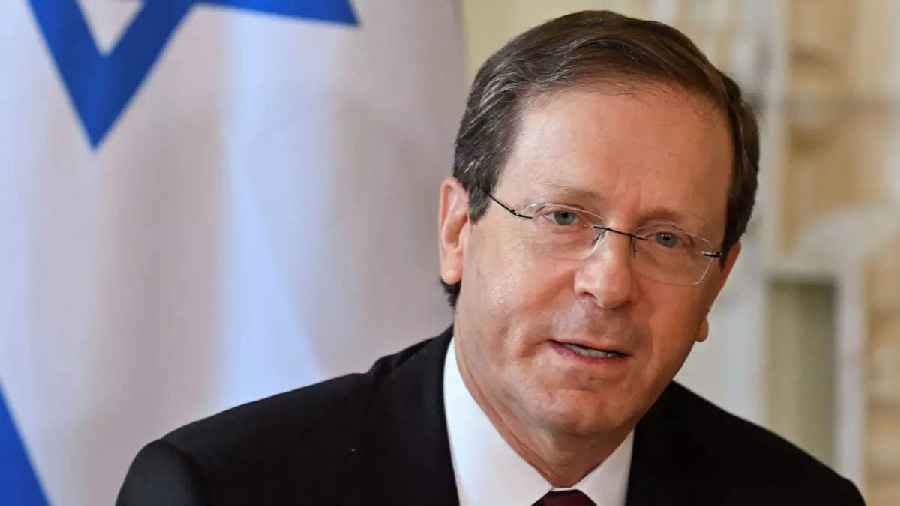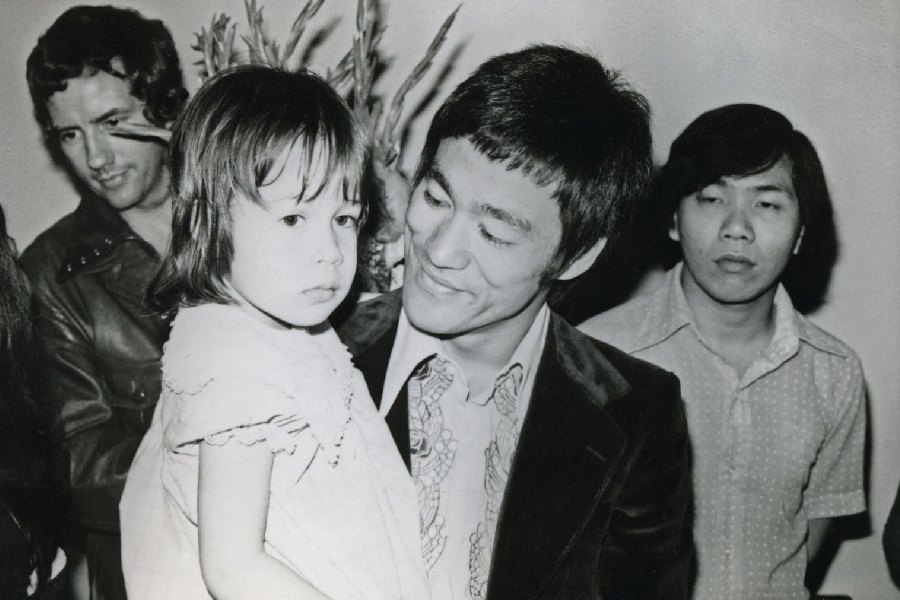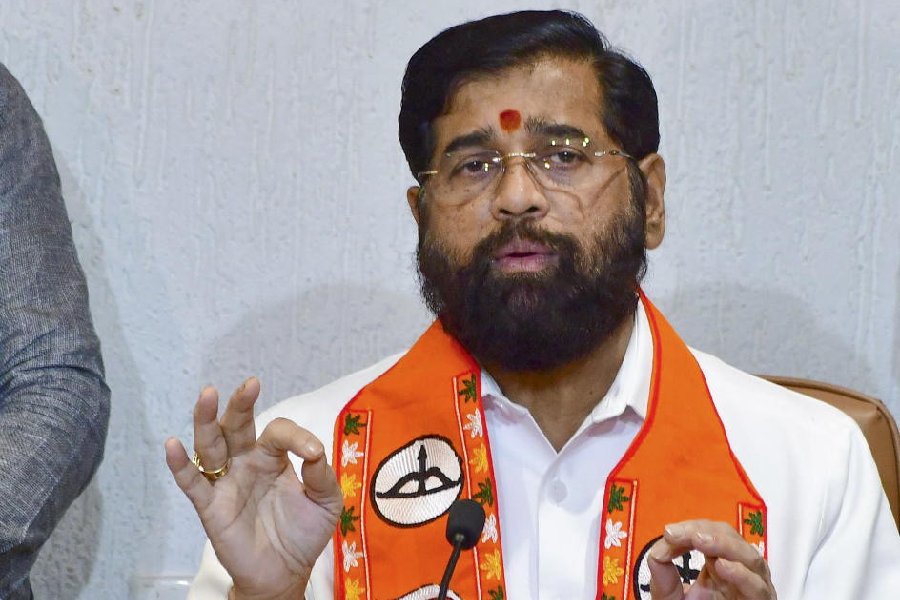Israel’s President Isaac Herzog on Monday appealed to Prime Minister Benjamin Netanyahu to immediately halt his controversial judicial overhaul, warning that the move has put the country's security, economy and society under threat.
Herzog's remarks came after Prime Minister Netanyahu sacked Defence Minister Yoav Gallant for opposing his judicial reforms, sparking widespread street protests.
The president also called on the government to put aside political considerations for the sake of the nation.
"Last night we witnessed very difficult scenes. I appeal to the Prime Minister, members of the Government, and members of the Coalition: there are harsh and painful feelings. The entire nation is rapt with deep worry," Herzog said.
"Our security, economy, society — all are under threat. The whole people of Israel are looking at you. The whole Jewish People are looking at you. The whole world is looking at you," the ceremonial president in a statement.
"For the sake of the unity of the People of Israel, for the sake of the necessary responsibility, I call on you to halt the legislative process immediately," he emphasised.
He urged all the leaders in power to place country's citizens above all else.
"I appeal to the leaders of all Knesset factions, Coalition and Opposition alike, to place this country's citizens above all else and to act with courage and responsibility without further delay. Wake up now! This is not a political moment; this is a moment for leadership and responsibility," the president asserted.
Tens of thousands of people took to the streets across Israel last night after Prime Minister Netanyahu fired Defence Minister Gallant after he said on Saturday evening that the judicial overhaul "poses a clear, immediate, and tangible threat to the security of the state".
Irked by the televised speech given by Gallant, the Prime Minister's Office in a terse statement on Sunday evening said that "Prime Minister Benjamin Netanyahu has decided, this evening (Sunday, 26 March 2023), to dismiss Defense Minister Yoav Gallant".
The announcement led to spontaneous unprecedented outburst of anger against the prime minister.
An unconfirmed Channel 12 report said that 600,000-700,000 Israelis were demonstrating late on Sunday across the country, with protests reported from Kiryat Shmona in the north to Eilat in the south.
Protesters in Tel Aviv blocked a main highway and lit large bonfires, while police scuffled with protesters who gathered outside Netanyahu's private home in Jerusalem.
The unrest sparked by Justice Minister Yariv Levin’s proposals to shake up the judiciary by severely curbing the High Court of Justice’s judicial review powers and the government's efforts to cement political control over the appointment of judges has met with resistance not only in the streets of the country but also abroad with thousands of Jewish diaspora members protesting during Netanyahu's visits to Italy, Germany and the UK.
The protests have alarmed business leaders, former security chiefs and drawn concern from Israel's close allies, including the United States.
The country has also seen economic disruption with talk of "flight of capital" and hi-tech leaders and firms.
The head of the Histadrut labour federation was due to give a press conference later on Monday, amid growing calls for a strike following the firing of Gallant.
The Histadrut said that trade unionist Arnon Bar-David would give a “special” statement alongside business chiefs and union leaders, without detailing what he will announce.
Several Hebrew media reports said he was expected to declare a strike.
The National Student and Youth Council, representing high school and middle school students, declared a nationwide strike to start Monday morning.
The council has called for "halting the [overhaul] legislation and starting negotiations immediately”.
There were unconfirmed reports in the Hebrew media that Netanyahu is expected to make an announcement this morning. He has been holding meetings with political allies for most of the night.
There has been no formal confirmation on this.
As protests intensified accompanied by an unforeseen display of anger, some Likud ministers relented, beginning to show their willingness to compromise.
Culture Minister Micky Zohar, a Netanyahu confidant, said the party would support him if he decided to pause the judicial overhaul.
Protest organisers, mostly common people with no declared political affiliation, continued to push for further demonstrations on Monday.
Political analysts see the development as a "grassroots movement" beyond the control of any political formation. The opposition though has been fully supportive and participating in the protests.
Legislation, which many argue is aimed at establishing executive's supremacy over judiciary, making it subservient to the government, is slated to come for the final readings this week in the Knesset.
With the government unrelenting and moving ahead with the "reforms", the protests have also been peaking and the country seems somewhat paralysed.
Internal differences within Israeli society have also intensified recently with the country looking broadly divided in two large blocs over the question of judicial overhaul.
Though the current governing coalition has committed to several controversial legislation, the biggest debate revolves around its push to increase political control over the judiciary.
Three key proposals being discussed are a move to legislate an "override clause" by which the Knesset can reinstate any law invalidated by the Supreme Court, put judicial appointments under political control as opposed to the current hybrid political-professional-judicial appointments panel, and to split the role of the Attorney General as both the head of the state prosecution and the government’s legal adviser.
Analysts feel that the controversial steps proposed emanate from the desire to protect Netanyahu, who is facing trial in three different cases, but altogether it serves the interest of all those included in the coalition in some way addressing each party's concerns.
Seen at the receiving end of international ire, including a rebuke from US President Joe Biden, Netanyahu has looked weak and perplexed but also hesitant to step back from the proposed "reforms" because of fear of backlash within his ruling Likud party.
Except for the headline, this story has not been edited by The Telegraph Online staff and has been published from a syndicated feed.












